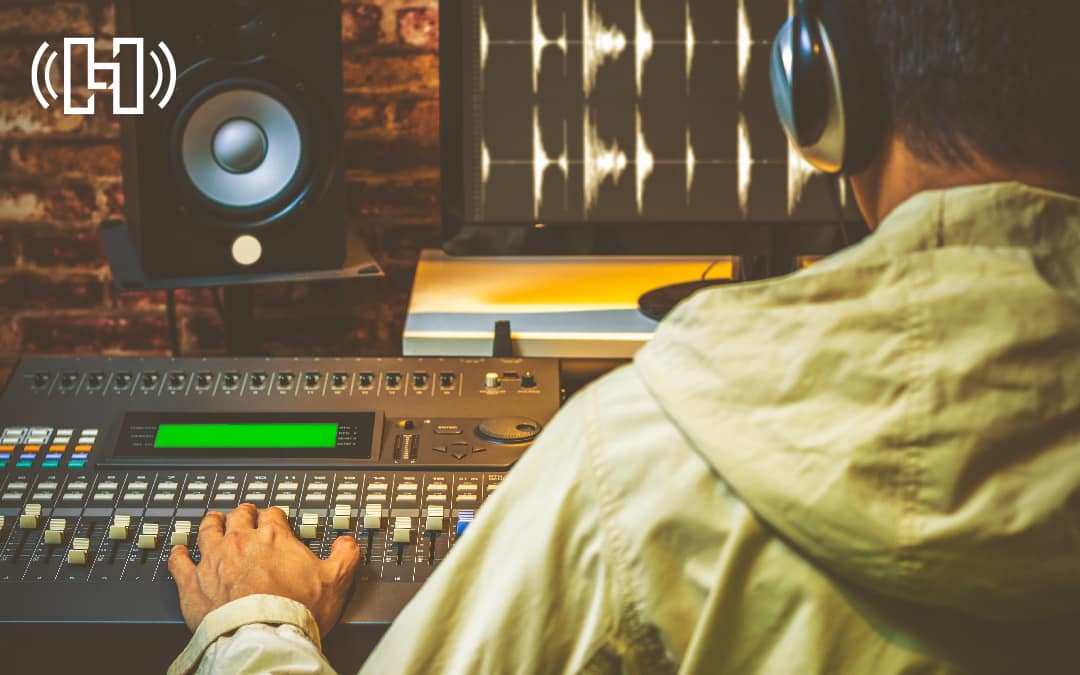Considering and accommodating for the listening experience is an easy way to make your podcast sound more professional. With over 80 million Americans listening to weekly podcasts, it’s important to create a seamless podcast listening experience that both attracts new listeners and keeps current listeners coming back for more. Check out these ideas for how to improve the listening experience on your podcast!
Decrease Noise Level
Before you start production, make sure there’s no background noise that could interfere with your podcast recording. Find a way to have complete silence in the room for the duration of your podcast episode. Background noises like doors shutting, dogs barking, or children playing should be avoided. A few ways to avoid background clatter in your podcast are to record in a soundproofed studio, use closed-back headphones to prevent sounds from leaking, or edit any extra sounds out after production’s finished.
Slow Down When Talking
A big mistake that podcasters can make while recording is talking too fast. When you talk slower, your podcast listeners are more likely to retain the information you’re sharing. Ideally, your podcast speaking rate would clock between 150-160 words per minute, similar to the talking speed you hear on audiobooks. If listeners feel like they have to focus intently on what you’re saying or need to repeatedly replay your recording, they’ll most likely find a new podcast. Taking a breath between sentences will help you to slow down your speech.
Edit Out Long Pauses & Tangents
Editing your podcast is important after you record an episode. Removing long pauses, tangents, and filler words like “um” will make a big improvement to the listening experience on your podcast. Conversations on podcasts should sound natural—not jarring, stilted, or filled with dead air. That said, don’t cut down long pauses too much because it could start to sound like people are talking on top of each other. It’s a balance. A good thing to remember when determining what you need to cut is the listener’s time. You should never make a listener hear parts of your podcast episode that are unnecessary because their time is valuable.
Use a Script to Guide Your Episode
Control your episode and create more structure by writing a podcast script. Podcast scripts are a good tool to use as a time-keeper, conversation guide, and sources for new topics. Focusing on how ideas are grouped together on a script can help you avoid jumping from one topic to the next and back again. Instead, this outline will help keep you on track, nail transitions, and serve as a reminder of all your key talking points. Don’t be afraid to deviate from the script, too. Letting conversation flow naturally is good for a podcast.
Explain Big Concepts
Providing context before diving into a layered topic can provide your listeners with more clarity about the subject and better enable them to comprehend what you’re discussing. The tone of your voice can have an impact on how well you break down a concept for your audience, too. You can make the audience feel as though you’re learning new information right alongside them by keeping your tone active and engaged. The same goes for when you’re hosting a guest. You should know enough about your guest so that you’re able to interview them, while also still discovering them with your listeners.
Make Your Podcast More Accessible
One of the best ways to improve the listening experience is to make your podcast more accessible to audiences. Providing podcast transcripts of your episodes allows your listeners to follow along easier, and it can be especially helpful for those who may be hearing impaired. You could also consider video podcasting with closed captioning to add a visual element to your podcast that makes your content more accessible for people who prefer to watch vs. listen.
Invest in Better Equipment at Some Point
Getting better podcast equipment can help improve the listening experience because you’ll be able to attain better sound quality. A few investments include noise-canceling headphones, new headsets, quality recording microphones, new microphone stands, and an upgrade to an audio interface or larger sound mixer. There are also many professional services that you can take advantage of to help you with your podcast, such as hiring an expert to help with editing or fact-checking material before you record. You could even think about getting a professional to help you better utilize audio software and gain a better understanding of the mechanics of your podcast, like compatibility and episode bandwidth.
Looking for ways to improve your podcast? Hurrdat Media can help with production, hosting, advertising, and more! Check out our podcast services and join our media network today!
